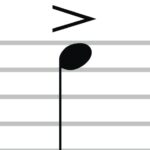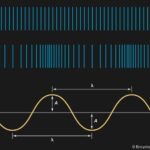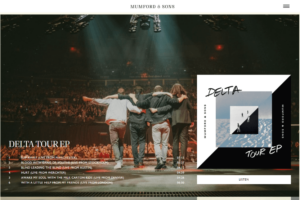Are you confused about what music programming is? Is it any different from music production or sound engineering? Music programmers – what do they do?
Music programmers express their ideas and thoughts musically through the use of computer software and electronic devices. Their tools include samplers, synthesizers, sequencers, and other electronic equipment. They use these tools to create sounds from different instruments in the recording studio.
Music programmers do not limit themselves to listening to one type of music, such as modern pop or rock music. They also listen to and work with classical music. Music programmers find that listening to classical music while programming can boost their IQ when performing complex tasks, such as their job.
Read on to learn about music programmers, what they do, how they affect music production, and other relevant information you need to know about this kind of work.
Music Programmer – What Do They Do?

Express Their Ideas Through Music
Since the job involves working with music, some have considered music programming as a form of music. This makes sense because music programmers work by expressing their ideas and thoughts through music.
Accomplish Tasks Using Software and Electronic Devices
They use computer software and certain electronic devices like samplers, synthesizers, sequencers, and so forth to accomplish their tasks. Music programmers use these tools to create sounds from different instruments in the recording studio or even during live performances.
A Complex Task
Music programming is a complex task. In this regard, some reports say music programmers listen to classical music while they are programming. Why? Because there is proof that listening to classical music can boost your IQ while doing complex tasks. It is what they call the Mozart Effect.
Involved in Musical Production and Performances
Music programmers involve themselves not only in music production but also in musical performances. To create and generate the sounds of musical instruments going inside their heads, they use different kinds of electronic devices and tools.
A High Demand for Programmers Since the 1990s
Music programming has been in demand since the 1990s due to the popularity of hip-hop music and electronic music. You can also see their influence on modern rock and pop music. Sometimes, their services are also required by contemporary classical and jazz artists.
To put it in basic terms, music programmers are professionals who involve themselves in the process of producing a sound or ‘patch’ with the help of a synthesizer or just right from scratch. So, as you can see, this work requires a lot of creativity and thinking out of the box.
What Is Music Programming?
Writing Music with the Help of Computer
In one sense, music programming is primarily the task of writing music with the help of a computer system. It is related to music production and sound engineering but is neither of the two. But some people confuse these three different job types with each other.
Music production is the production of music. Whatever way they do it, the task of a music producer is to produce music. Sound engineering, on the other hand, is a collection of everything. Sound engineers involve themselves in recording, mixing, mastering, and so forth.
Creation of Automated Variations in Audio Effects
The common element of modern music production and mixing of music is music programming. Programming, in this context, can mean the creation of automated variations in audio effects like dynamic EQ and compression. It can also mean using a step sequencer to develop music and beats from synthesizers and samples.
Music Programming Is Different from Music Production and Sound Engineering
Music programming is entirely different from music production and music sound engineering. It is not separate from them, but it is also not an alternative to them. It is just a part of the process of creating and recording, and producing music. Those who want to make music must also get some education about music programming.
Programmers Use Digital Audio Workstations (DAWs)
Music programmers use Digital Audio Workstations or DAWs, such as the Logic Pro X, to express the musical concepts inside their heads. So, if you want to create music for an orchestra, but you don’t have any physical contact or connection with a real-life orchestra, you can resort to music programming to make your orchestral sounds.
So, music programmers can create orchestral musical pieces without using the services of human orchestra players. The DAW that you will use will provide you with all the strings you will need, such as a piano, a timpani, brass and percussion instruments, and even synths, and so forth. This is the fundamental idea that makes music programming work.
You can also consider music programming as a process by which a musician or a composer creates sounds or ‘patches’ with the help of a synthesizer or sequencer.
Involves Layering and Manipulating Various Sounds
Music programming can also include the process of layering and manipulating various sounds to create a single track without having actual musical instruments on hand to do the recording and music production.
If there were no music programmers in the music industry, rock music, hip hop, and all types of music genres that most people love to hear today, across the planet, would not even exist. That’s how vital music programming has become.
Role of Music Programmers in Music Production and Radio Stations

Indeed, music programmers have a role in music production. However, they are more focused on the technical aspects of the job. They create and shape sounds with the use of modern electronic tools.
It is a given that as technology advances, people’s tastes in music change and level up. So, music programmers should be ahead of the curve if they are to be useful. Plus, music programmers have to innovate, experiment, and create using the tech tools they have.
Music Programmer Tasks During Music Production
Here are some of the tasks a music programmer perform during music production:
- Record and arrange musical instruments using MIDI;
- Create original sound elements for video, film, and video games;
- Arrange recorded tracks systematically;
- Place music tracks according to the song tempo;
- Give or add compression, delay, reverb, and other effects to tracks;
- Mix a song track;
- Remove noise, pops, and cuts;
- Maintain adequate knowledge of new and emerging musical styles;
- Design, use, and build hardware and software instruments;
- Create and maintain high-quality beats and sound landscapes;
- Code audio software applications; and
- Perform live music using different software and hardware devices.
Another aspect of music programming is technically unrelated to music production per se but is connected to music programming. This aspect is related to radio station music production.
You will know that radio stations must play the music their audiences like, or they will go out of business. So, in this situation, the music programmer’s role is different from those I discussed above.
Music Programmer Tasks in a Radio Station
The roles of a music programmer working on a radio station include the following:
- Manage music or song playlists so that the sound of the station will remain fresh and interesting to its audience;
- Ensure that the radio show presenters have all the music they need and the related information about the music on their playlists;
- Manage the process of inputting songs into the playout system;
- Ensure that inputted songs are clean as far as language is concerned and that they have the correct metadata that will make sure they will appear at the right places;
- Plan music for specific station events, such as anniversaries, Christmas, New Year, and so forth;
- Discuss music policy for the station with the music team to ensure the right market position of the station;
- Arrange and hold meetings with record labels, agents, and pluggers to discuss new music or trends;
- Handle incoming requests about new music from the producers of the radio station, or for any specific question about a playout system they may have or may require;
- Keep tabs with the administration or management such as ensuring that PPL and PRS requirements are always satisfied;
- Conduct music analysis and panel test research to ensure that all songs are working well for the audience. This is important especially in commercial radio stations; and
- Attend playlist meetings to discuss if new songs will be added to the rotation of songs on-air, and to which playlist these songs will be included. And conversely, to decide which songs in the current playlist should be retired.
Again, what do music programmers do? Music programmers produce a sound or patch in the music studio with the help of electronic devices and software, including samplers, synthesizers, sequences, and more.
Music Programmers Create Music

In the past, people record music using simple analog tape recorders. Now, you can record, edit, and modify or transform music using computer technology. Computers and computer software play a major role in this development.
Programmers Use Coding Languages and Software
Music is measured by time, such as beats per minute or BPM. Then, computers use coding languages and software containing sound samples and virtual musical instruments to create musical phrases and sentences organized into a set time structure.
By using music computer software, music programmers can create tracks of music pieces by manipulating the different sounds by milliseconds.
Live Coding
Music programmers can also create and manipulate the music delivered by artists while performing live on stage. They call it live coding, which is a type of inter-media art. Usually, while the artist is performing live, some visuals will appear.
These visuals are usually in the form of projected code. Changing some factors affect said during the music creation. Sonic Pi is usually the programming language used in live coding performances.
Modern Pop and Rock Music Heavily Rely on Music Programmers
Today, modern pop and rock music rely heavily on music programming and music programmers. Raw music talent and untouched music are no longer enough in creating and producing modern music.
Modern music programmers create new sounds that are unheard of. Since new technology and electronic equipment are the tools of the trade, music programmers must develop the skills to operate the software and hardware that create today’s music.
Music Programmers Are Also in Demand in the Video Game Industry
Their services are also in demand in the video game industry. Video games produced today are far advanced compared to the video games created a decade ago. Thanks to video game creators and developers, as well as music programmers.
Relation Between Music Production, Sound Engineering, and Music Programming
One Cannot Exist Without the Two
There is an interrelation among these tasks, sound engineering, music production, and music programming. One cannot exist without the other two. How are they related to each other? You will understand their relations if you will look closely at the process of music production.
Music Production Process
Firstly, before a song or a record is produced, someone has to plan it. This person plans how the song will sound, what instruments will be included, and so forth. Then when all the planning is completed, that’s the time you start recording the song.
You will need a singer and accompanist or instrumentalist. If you don’t have live musicians, the music programmer will supply this part. After assembling your crew, you start the recording. Then you need to mix all the parts to make it one whole piece of music to produce the final take.
Recording, Mixing, and Mastering Falls on the Lap of a Sound Engineer
The work of recording, mixing, and mastering falls on the lap of the sound engineer. Meanwhile, the task of programming the music falls on the shoulders of the music programmer. All the work done during the whole process is called music production.
Conclusion: Music Programmer – What Do They Do?
Music programmers are those who express their concepts and thoughts through music. They use computer software and electronic devices to do their work. The musical equipment they use in their work includes samplers, synthesizers, sequencers, and so forth.
They use these tools to create sounds from different musical instruments in the recording studio. There are times that they also use their skills and talents in music programming in live concerts and big entertainment productions.






![What Is Music Without Lyrics Called [and Popular Instrumentals] what is music without lyrics called](https://musicalinstrumentpro.com/wp-content/uploads/2022/09/what-is-music-without-lyrics-called-150x150.jpg)


![Read more about the article What Instrument Does Kenny G Play? [Kenny G Instrument]](https://musicalinstrumentpro.com/wp-content/uploads/2020/11/what-instrument-does-kenny-g-play-300x200.jpg)